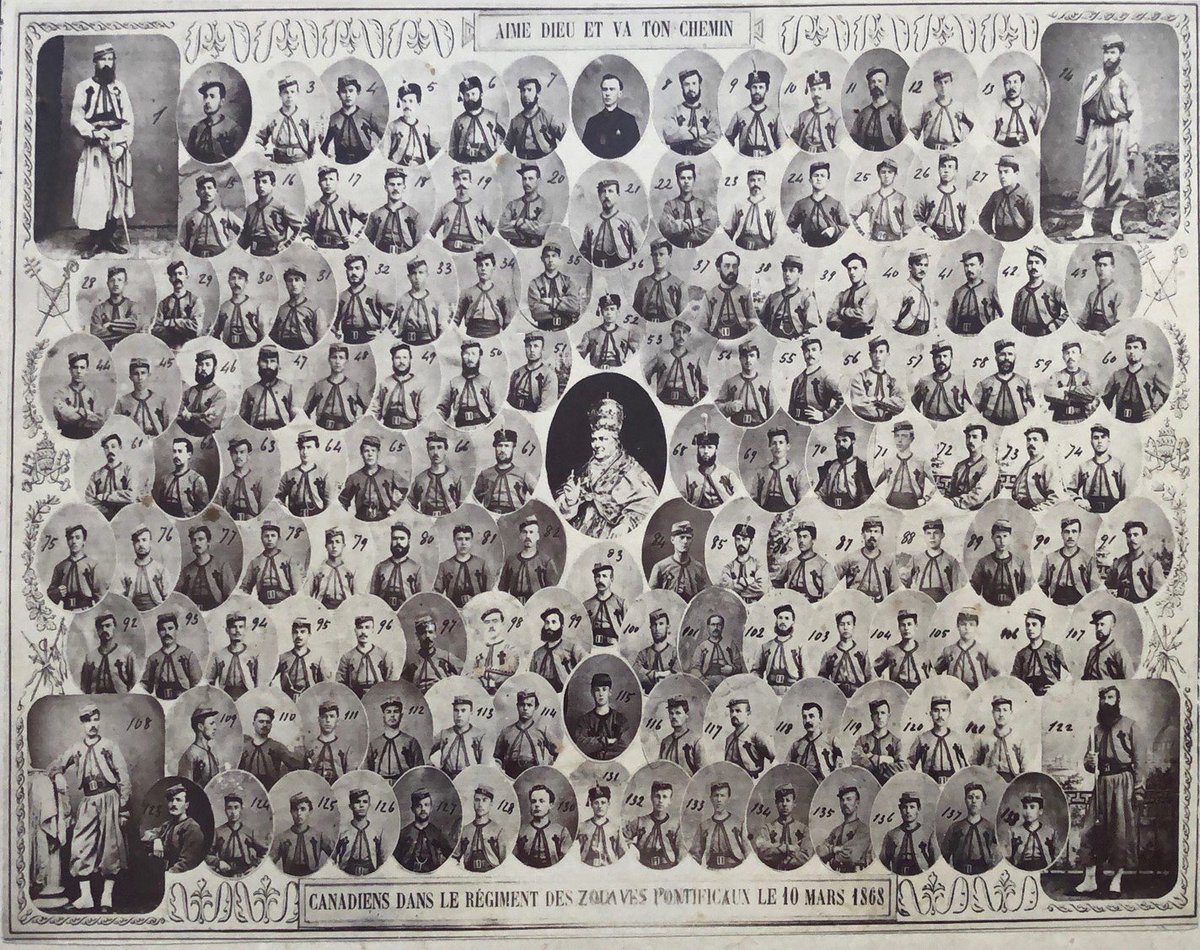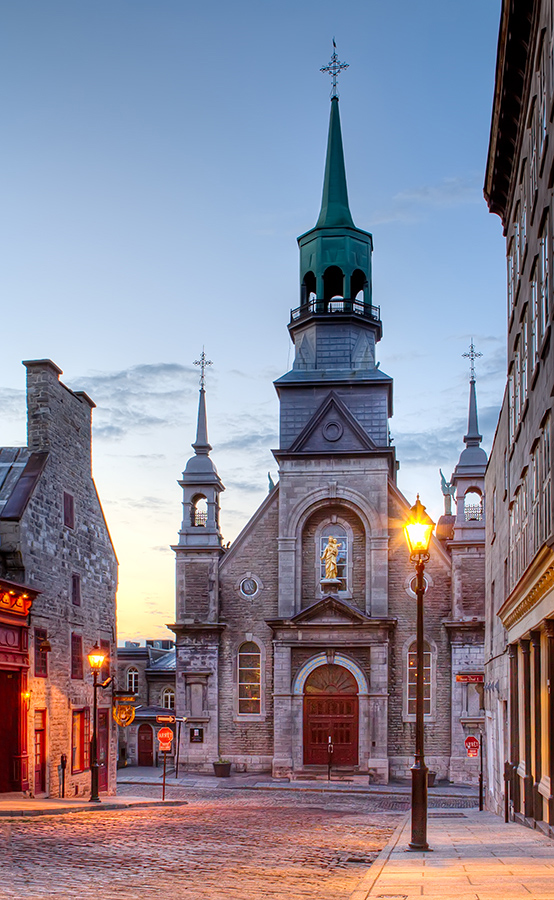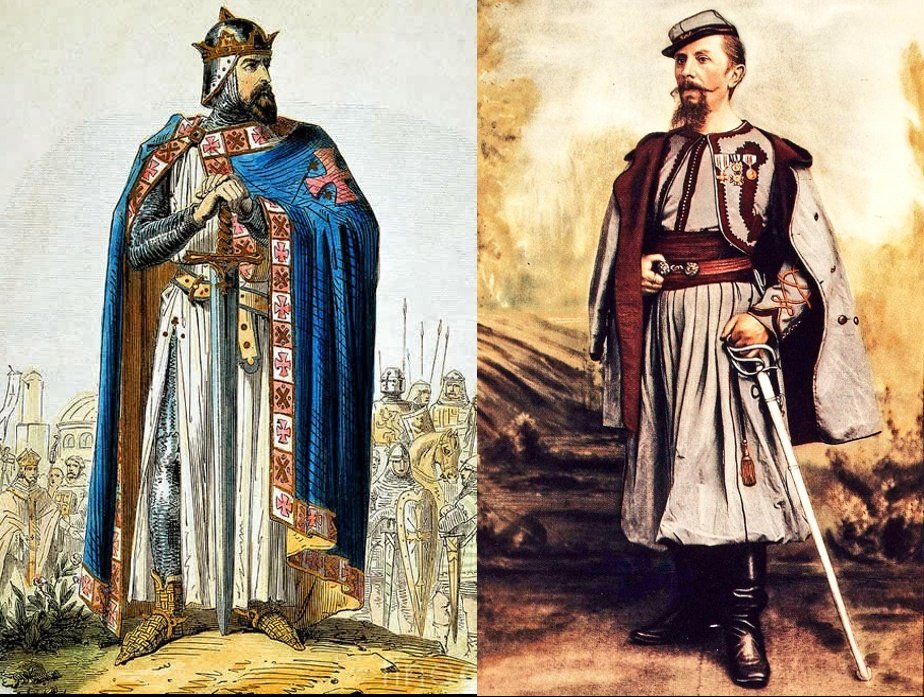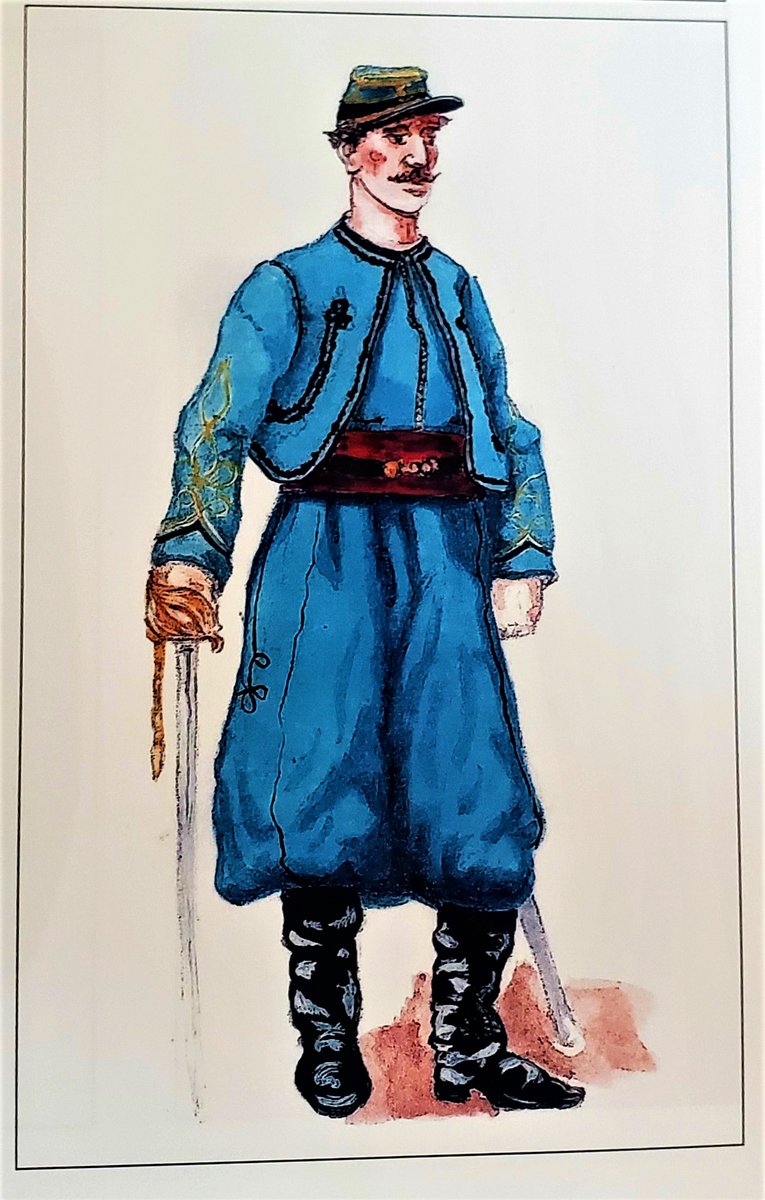The ex voto ship offered by the Canadian Papal Zouaves to Mary for saving them from death at sea🇨🇦🇻🇦🧵
Around 500 Canadians travelled to Rome between 1868-1870 to join the Papal Zouaves and defend Bl. Pope Pius IX and the Papal States from Italian revolutionaries.
1/14


Around 500 Canadians travelled to Rome between 1868-1870 to join the Papal Zouaves and defend Bl. Pope Pius IX and the Papal States from Italian revolutionaries.
1/14


After Rome fell on Sep. 20, 1870 the Pope's foreign soldiers were deported. The Canadian Papal Zouaves began to make their way home.
On Oct. 19, a large contingent of Canadian Zouaves left Liverpool, England aboard the American ship “Idaho” bound for New York.
2/14
On Oct. 19, a large contingent of Canadian Zouaves left Liverpool, England aboard the American ship “Idaho” bound for New York.
2/14

Two days after departure, a violent storm appeared. According to one author at the time:
“The ocean roared, hissed, howled, and roared with greater force and rage, the mountains of water which came crashing sometimes on the bow, sometimes on the stern of the vessel, were
3/14
“The ocean roared, hissed, howled, and roared with greater force and rage, the mountains of water which came crashing sometimes on the bow, sometimes on the stern of the vessel, were
3/14

more and more heavy and threatening; the frame of the ship seemed to be breaking apart; when suddenly a frightful noise, like that of lightning falling on the bow, was heard; At the same time, a terrible jolt was felt as if the ship had struck a rock, and before realizing
4/14
4/14
the accident, the Zouaves heard immense columns of water rushing into their compartment. An anchor was swept away by a strong wave from the upper deck, leaving behind it a large exit for the waves to flood the tween deck; One sees oneself in front of death,
5/14
5/14

and these waves seem to come to seek corpses; while some cling to the objects which they can meet under the hand, that the others throw themselves to the swim in this small interior sea, a voice dominating all the noise is heard; it is a zouave which orders to his comrades
6/14
6/14
to raise their heart towards Mary and to promise her an ex voto, if they arrive at good port. It was around midnight.
The next day, the waves, as if tired, only obeyed the movement printed the day before, the wind had fallen, the sky was pure, all the passengers,
7/14
The next day, the waves, as if tired, only obeyed the movement printed the day before, the wind had fallen, the sky was pure, all the passengers,
7/14
mounted on the deck, breathed with the fresh air, hope and happiness; the zouaves thanked the Virgin Mary, to whom they attributed their salvation."
The Papal Zouaves had faced three days of strong storms.
8/14
The Papal Zouaves had faced three days of strong storms.
8/14
When a shipwreck seemed imminent one of the Zouaves, Gédéon Désilets, called on his comrades to invoke the Blessed Virgin. If they avoided disaster, the Canadian Zouaves would make a pilgrimage to the sanctuary of Notre-Dame-de-Bon-Secours and offer an ex voto to the Virgin
9/14
9/14
Their prayer was granted. The next day the storm calmed and shortly thereafter they reached N.Y. On Nov. 6, the contingent of Canadian Zouaves arrived in Montreal to the cheers of fifty thousand people led by the Bishop. Before heading home the Zouaves made a pilgrimage
10/14
10/14

to Notre-Dame-de-Bon-Secours to offer thanksgiving for their safe return. Over a year later in the spring of 1872 an ex voto in the form of a silver replica of the Idaho was offered.
A ceremony was organized in the chapel, bringing together around a hundred Papal Zouaves.
11/14
A ceremony was organized in the chapel, bringing together around a hundred Papal Zouaves.
11/14

The ship is suspended from the vault, in the center of the nave. It is the first votive vessel added to the chapel. The gift of the Zouaves began a tradition of offering model boats to this Marian chapel as a way of thanksgiving. Earning it the name the sailors' chapel.
12/14
12/14

Each Sept. the last company of The Association of Canadian Pontifical Zouaves makes their own pilgrimage to Notre-Dame-de-Bon-Secours to honor the ex voto offered by the Canadian Papal Zouaves.
The ship measures 1.5 ft. H x 2.7 ft. W x 6 in. D.
13/14
The ship measures 1.5 ft. H x 2.7 ft. W x 6 in. D.
13/14

The Idaho is lit by two electric lanterns in green tinted glass. The bow features the Virgin Mary with her hands joined in prayer. The ship houses a small wooden capsule which contains a list 69 Zouaves who pledged to maintain the ship's votive lanterns in perpetuity.
14/14
14/14

• • •
Missing some Tweet in this thread? You can try to
force a refresh

 Read on Twitter
Read on Twitter
























